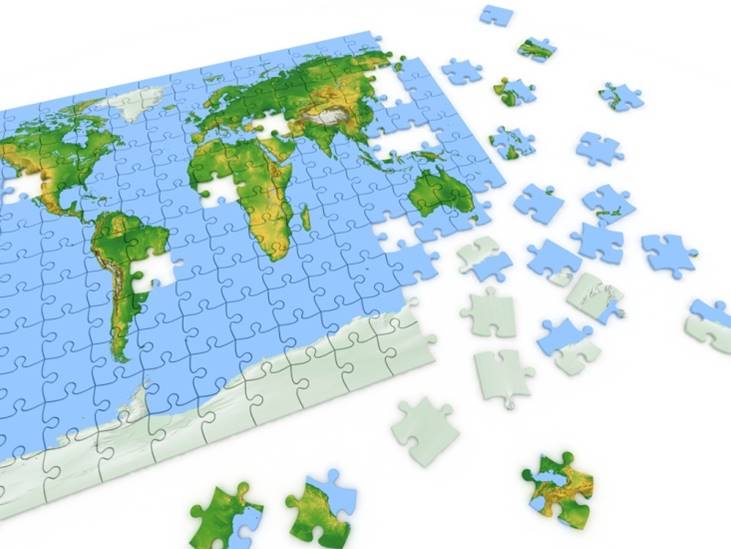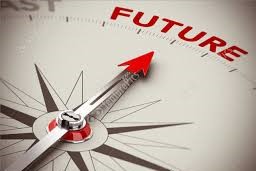Think Outside the Box……..But Don’t Untie the Knots
What Role Can Evidence Play in Predicting the Future?
............Tom Buncle picks up the cudgels to defend the role of current evidence in future forecasting
I had the honour last week of being invited to speak at an event in London commemorating the late, great tourism guru, Victor Middleton. Apart from his many qualities as an intellectual giant, critical thinker, and ability to cut through cant like a hot knife through butter, he also pioneered the recognition of tourism as a serious business sector.
As a friend and colleague put it, Victor “defined what tourism actually is”, meaning a significant driver of local and national economies and a potential force for good, in terms of its contribution to social cohesion and environmental conservation. Importantly, Victor was also a passionate advocate of evidence-based argument to underpin marketing strategy and policy-making, which led to an early career appointment as Marketing Research Manager at the embryonic British Travel Association, predecessor of the British Tourist Authority/Visit Britain.
In an era when fake news and policy by prejudice all too often trump facts and hard-sought evidence, we may view the days of such intellectual rigour nostalgically. This makes it all the more important to resuscitate the dying embers of objective analysis to keep the fires of reason burning.
The Future Lies Ahead
Last week's event coincided with the 50th anniversary of the UK Development of Tourism Act (1969), which marked the beginning of tourism’s coming of age. So, all speakers were asked to gaze into their crystal balls and make a stab at what the next 10 years in tourism might look like. This is where Victor’s passion for evidence-based argument and cant-cutting, feet-on-the-ground approach, were sorely missed, as they might have headed off a debate about science fiction at the pass.
The End of Travel as We Know It

One of the speakers posited that leisure travel had no future as we know it. “Flygskam” (flight-shaming), political responses to climate change, and populist pressure would result in travellers satisfying their urge to see the world by staying at home.
Rather than travelling, they would opt to view faraway destinations on sophisticated virtual reality sets, adorned with enhanced artificial intelligence (AI) bells and whistles. This would provide them with a fully immersive experience in places no one would visit any more. We would, at a stroke, stop travelling and, hey presto, like Francis Fukuyama’s prediction that we were ‘at the end of history’, tourism would be at an end. I had to pinch myself to realise he wasn’t talking about the invention of television.
Right Problem, Wrong Solution
 This seems like putting two and two together and getting five. On one level, faced with the challenge of thinking outside the box about the future and acknowledging the relentless pace of innovation in AI, plus growing concern about the impact of travel on climate change, this might seem a plausible, evidence-based hypothesis…….Except that it ignores human psychology and motivation.
This seems like putting two and two together and getting five. On one level, faced with the challenge of thinking outside the box about the future and acknowledging the relentless pace of innovation in AI, plus growing concern about the impact of travel on climate change, this might seem a plausible, evidence-based hypothesis…….Except that it ignores human psychology and motivation. Sure, some people will stop flying and others will choose to holiday at home. But most won’t. This doesn’t offer a panacea that will be adopted worldwide – because people are people and those fortunate enough to have the disposable income to travel still put a holiday above most other major discretionary purchases.
You don’t have to dig too deeply into Maslow’s ‘self-actualisation’ need to understand this. When asked why they choose to visit a particular destination, the first answer most respondents give in surveys is “I just want to go somewhere different” – not helpful to marketeers trying to understand why people choose one destination over another; but it does reveal a deep-seated need to change their environment at least once a year.
Will sitting in an armchair, no matter how comfortable, at home fulfil this need? I doubt it….and so does the evidence to date. More worryingly, faith in an AI-induced couch potato syndrome as an alternative to travel represents such an extreme and unrealistic response to the problem of tourism-related carbon emissions that it risks undermining serious and necessary attempts to address the negative impacts of tourism by its sheer illusory logic.
People Are Part of the Solution, as Well as Part of the Problem
By challenging this fantastical view of the future, I am not dismissing the desperate need to address the widespread negative impacts of tourism – from carbon emissions to landscape erosion, modern slavery to child-trafficking, and much more. Far from it, my greatest wish for the sector that has given me a living for 40-odd years is that it both recognises and addresses its excesses.
But, to address these issues seriously, I do believe we need to take human reality into account. And this means sometimes radical, probably largely incremental, but not fanciful, measures – a mix of persuasion and regulation, whereby people take responsibility for reducing the impact of their travel choices, businesses minimise the impact of their programmes, and governments and other authorities limit access to places under pressure and restrict activities that exacerbate the damage.
The Future Still Lies Ahead
 Thinking outside the box is always to be encouraged, no matter the grating business jargon. But to do so by untying the knots in the string holding the box together risks having no more box outside of which to think; or - to kill off this cumbersome metaphor - flights of fancy without at least a modicum of grounding in the reality of the human condition are for the birds.
Thinking outside the box is always to be encouraged, no matter the grating business jargon. But to do so by untying the knots in the string holding the box together risks having no more box outside of which to think; or - to kill off this cumbersome metaphor - flights of fancy without at least a modicum of grounding in the reality of the human condition are for the birds.
So, to give the last word to the spirit of Victor Middleton: any prediction that ignores all evidence assembled over many years might be entertaining; but it is more likely to be science fiction than future fact. But who knows? As Nils Bohr, atomic theorist and Nobel Prize winning physicist, said, “Prediction is very difficult, …………….especially if it's about the future".



